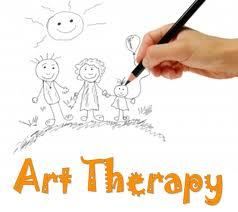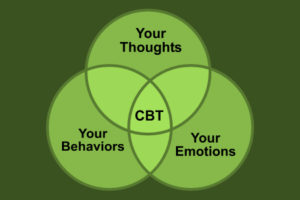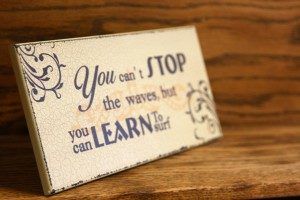Coming Soon.

In addition to providing services in the comfort of our office, we also provide services in the comfort of your home, office or other mutually agreed upon place. We will travel and meet with you anywhere in the geographic areas between Huntington Beach and Malibu. Now we are able to provide the same quality treatment outside of the confines of our office in order to make sure you get the help you need.
The cost varies depending on the service and the amount of time required to provide the service. Please call for further details.

ADHD coaching is a dynamic methodology that aims to nurture your ability to self-initiate change in your daily life. It is a supportive, practical, concrete process in which you and your coach work together to identify and pursue  your goals. Coaching helps individuals with Attention Deficit Hyperactivity Disorder (ADHD) to develop the structures necessary to function effectively and to learn practical approaches to the challenges of daily life.
your goals. Coaching helps individuals with Attention Deficit Hyperactivity Disorder (ADHD) to develop the structures necessary to function effectively and to learn practical approaches to the challenges of daily life.
At the heart of the AD/HD coaching model is the aim to help clients to self-initiate change in their daily lives. This goal is ultimately accomplished by using strength-based strategies  and the client’s own innate creativity to solve problems. The coach provides structure, feedback and encouragement to keep the learning process a dynamic one. This is done until the client increases self-awareness, builds an arsenal of strategies from which to draw from, and develops the confidence in his/her own ability to self -manage.
and the client’s own innate creativity to solve problems. The coach provides structure, feedback and encouragement to keep the learning process a dynamic one. This is done until the client increases self-awareness, builds an arsenal of strategies from which to draw from, and develops the confidence in his/her own ability to self -manage.
Therapist and client develop a user-friendly partnership to motivate and move forward. This partnership enables you to figure out exactly what you need from coaching and how to get it. Your job will be to tell the coach where you need help and then to mold and shape the dynamics of the partnership.
We also use structuring, to improve your focus and to channel your abilities to function at your best and achieve your goals. Structuring takes you repeatedly through the steps of attending to details, planning, organizing, and prioritizing, until you’ve paved a path in your brain with boundaries to keep you from straying off course.
your abilities to function at your best and achieve your goals. Structuring takes you repeatedly through the steps of attending to details, planning, organizing, and prioritizing, until you’ve paved a path in your brain with boundaries to keep you from straying off course.
 Therapist/coach guides you in self-exploration and learning. The focus is on problem-solving through guided discussion, so the language the coach uses is for the purpose of drawing solutions from you. Because you come up with your own solutions, you become empowered and can more readily take ownership and control of your actions.
Therapist/coach guides you in self-exploration and learning. The focus is on problem-solving through guided discussion, so the language the coach uses is for the purpose of drawing solutions from you. Because you come up with your own solutions, you become empowered and can more readily take ownership and control of your actions.
 Veronica’s coaching method takes into account the newest research in neurobiology and uses effective techniques including hypnosis for specific ADHD behaviors. Exciting discoveries made by neuroscience suggest that the brain is flexible in its ability to learn continually. Research provides evidence of physical and chemical changes that occur in the brain when it is challenged or when new encounters are experienced. Rehearsing actions actually help to forge new neural pathways in the brain, allowing it to develop competencies in areas that historically have been deficient. This is how new habits are learned. Veronica uses her experience as a Psychotherapist and Hypnotherapist to coach others into managing their ADHD and using it to their advantage.
Veronica’s coaching method takes into account the newest research in neurobiology and uses effective techniques including hypnosis for specific ADHD behaviors. Exciting discoveries made by neuroscience suggest that the brain is flexible in its ability to learn continually. Research provides evidence of physical and chemical changes that occur in the brain when it is challenged or when new encounters are experienced. Rehearsing actions actually help to forge new neural pathways in the brain, allowing it to develop competencies in areas that historically have been deficient. This is how new habits are learned. Veronica uses her experience as a Psychotherapist and Hypnotherapist to coach others into managing their ADHD and using it to their advantage.

If you or your loved one has agreed to treatment and you are wondering where to go, we are here to help make that decision. A Licensed Trained Mental Health Professional will assess and determine what the individual needs are of the client and the best facility to meet those needs. We also assist with escorting the individual to treatment if necessary.
Yes, and as part of our service we will negotiate the cost of treatment for those individuals who are paying cash for treatment.
We have taken the time to tour many facilities and are familiar with their treatment process. Treatment is not a one-size fits all. The individual needs of the client determine the treatment recommendations. Many Professionals may work with one or two facilities. We have relationships with many facilities and base our recommendations on the needs of the client, not limiting our choices to one or two facilities. We are also familiar with success rates as a result of our own clients experiences.

 A formal Intervention may be the only way to allow an individual to realize the need for treatment. None of us are immune from the risks of substance abuse and/or mental illness and the sooner the Helping Professional receives the necessary help, the better it is for everyone.
A formal Intervention may be the only way to allow an individual to realize the need for treatment. None of us are immune from the risks of substance abuse and/or mental illness and the sooner the Helping Professional receives the necessary help, the better it is for everyone.

The “Art” in Art Therapy is simply another way to:
Research has shown Art Therapy to be a powerful therapeutic tool for helping families, couples, adults, adolescents and children. Clinical Art Therapists are trained in all of the traditional talk therapy approaches and create individualized art directives based on the client’s issue at hand.
You don’t need to be an artist: The art is a tool, not a product.
The art process is what heals and the uglier and the messier the better.
This is not about making pretty pictures.

Cognitive Behavioral Therapy (CBT) is a form of psychotherapy widely accepted for many psychological concerns. Cognitive Behavioral Therapy has been scientifically tested in number of research studies and shown to be effective. CBT is based on the cognitive model, which hypothesizes that people’s emotions and behaviors are influenced by their perception of the events. When people are in distress, their negative beliefs about themselves, the world and the others are activated, and they can’t think clearly. CBT focuses on thoughts and beliefs that are either distorted or distressing. CBT teaches clients to identify, evaluate and respond to their distressing thoughts and beliefs. CBT uses a variety of techniques to change thinking, mood and behavior that are self-defeating.
 How will CBT help me?
How will CBT help me?CBT is goal oriented, problem focused and emphasizes the present. CBT teaches you (the client) to become your own therapist by acquiring specific skills which you can use for the rest of your life. CBT highlights problem solving and utilizes people’s strengths and abilities to make changes.
DBT (Dialectical Behavioral Therapy) utilizes many of the CBT interventions/ techniques to bring about change and adds strategies for radical acceptance. DBT incorporates Mindfulness practice derived from Zen Buddhism. Standard DBT treatment includes weekly skills coaching but most individual therapists incorporate skill training during therapy sessions. Core mindfulness skills are the foundation for building Emotional Regulation skills, Interpersonal Effectiveness skills and Distress Tolerance skills. DBT is effective treatment for clients with marked impulsivity.
DBT (Dialectical Behavioral Therapy) utilizes many of the CBT interventions/ techniques to bring about change and adds strategies for radical acceptance. DBT incorporates Mindfulness practice derived from Zen Buddhism. Standard DBT treatment includes weekly skills coaching but most individual therapists incorporate skill training during therapy sessions. Core mindfulness skills are the foundation for building Emotional Regulation skills, Interpersonal Effectiveness skills and Distress Tolerance skills. DBT is effective treatment for clients with marked impulsivity.
Skype is an internet program that allows individuals to communicate via video conferencing. We can bring our psychotherapy services to your home, office or anywhere in the world with skype. All you need to do is a set up your own skype account and then we can provide services to you anywhere you have access to a computer and also any mobile device (telephone, kindle, tablet, ipad, laptop).

“We’re so busy watching out for what’s just ahead of us that we don’t take time to enjoy where we are.” ― Bill Watterson

DBT was developed in the late 1980’s by Dr. Marsha Linehan initially to treat those suffering from the most difficult to treat psychiatric behavior, chronic suicidality. DBT was shown to be highly effective in treating these patients and improving their overall quality of life so it was later adapted to treat other psychiatric illnesses including Bulimia Nervosa and Binge Eating Disorder.
“You can’t stop the waves, but you can learn to surf. “ – Jon Kabat-Zinn
DBT teaches you how to surf. Suffering is often born from the inability to accept things in our lives that we cannot control. Maladaptive coping skills like eating disorder behaviors, substance abuse, and self-harm are developed of a desire to relieve our own suffering in the short term but these behaviors increase suffering in the long term. The difficulty is that these behaviors do work in the short term to relieve discomfort, anxiety, pain, and suffering. In the long term however they lead to a loss of relationships, decline in physical health, and overall compromise an individual’s quality of life. DBT skills training teaches us how to our acceptance of life as it is, which in turn decreases suffering.
DBT is a combination of Cognitive Behavior Therapy techniques and skills along with principles from Buddhist mindfulness practices to decrease suffering and increase effective coping overall. The four modules of DBT (Mindfulness, Distress Tolerance, Emotion Regulation, and Interpersonal Effectiveness) provide a long list of skills to increase effective behavior in those four areas of life. DBT is a skill based intervention and the therapist acts as coach as well as a therapist providing education, real world skills coaching, and collaborative goal setting.
Dialectical Behavior Therapy skills and principles will be utilized as the framework for individual therapy. Individual DBT skills and will be taught and tools will be utilized by a highly experienced DBT trained Therapist Marilyn Brown, L.M.F.T. as the framework for therapy to help manage maladaptive coping behaviors. One of the core assumptions of DBT is that people are doing the best that they can and this has guided my treatment philosophy leading to non-judgmental compassionate skills based therapy.
“When we are mindful, deeply in touch with the present moment, our understanding of what is going on deepens, and we begin to be filled with acceptance, joy, peace and love.” — Thich Nhat Hanh
“Wondering if you are a cell phone addict or a tech junkie?
Take our self-test to find out.